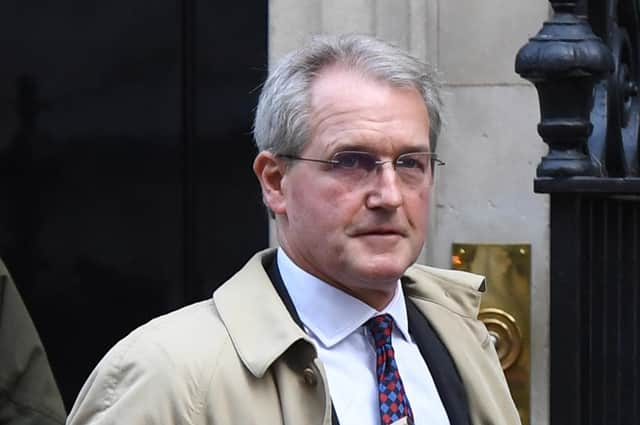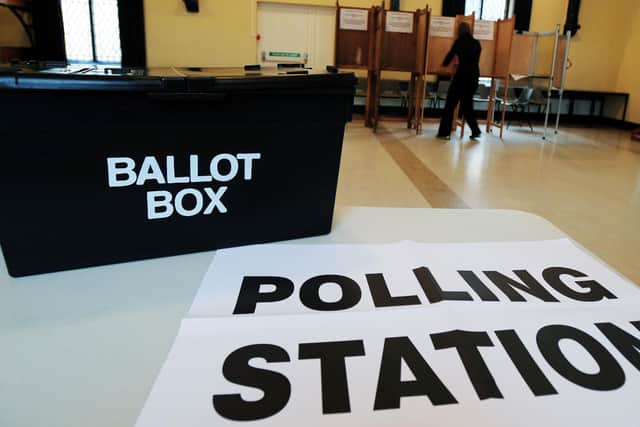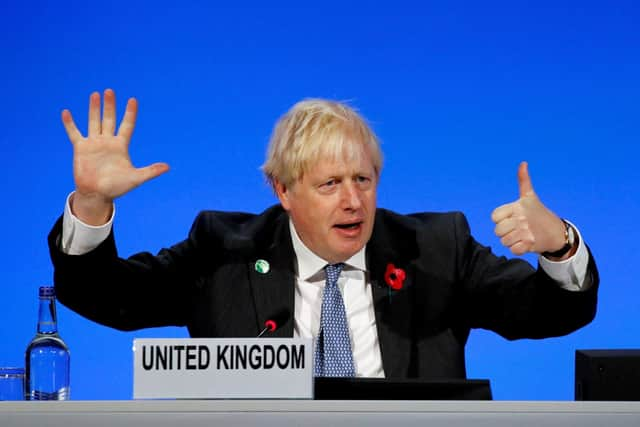North Shopshire tactical voting dilemma in by-election makes case for electoral reform – Rob Potts


However the circumstances behind Owen Paterson’s own resignation following a lobbying scandal had already sowed the seeds of apotentially historic political upset.
Advertisement
Hide AdAdvertisement
Hide AdWhether all this will be enough to turn the tide of history is another question, but there is a sub-plot which could have greater long-term significance – not least here in Yorkshire.


As with the recent Chesham and Amersham by-election, there has been pressure on Labour to ‘stand down’. On that occasion, Labour did indeed run a deliberately benign campaign, duly losing their deposit with just 622 votes cast in their favour and allowing the Lib Dems to claim the once safe Tory seat.
Although Labour secured the second largest share of the vote in North Shropshire in 2019 where the Tories won by 22,949 votes, and the party’s own constitution requires it to field candidates in all elections, no members of the Shadow Cabinet have set foot in the seat during the campaign.
Meanwhile leaked data from the Lib Dem camp suggests that the Tory lead is crumbling and tactical voting could just swing the final count in their favour.
Advertisement
Hide AdAdvertisement
Hide AdWhat should be the biggest debating point, though, is that, once again, we have an election where the voters are having to second guess and vote tactically, rather than being able to vote for the party they actually wish to support.


Recent opinion polls place support for the Government at just 32 per cent (or to look at it another way, 68 per cent of the electorate don’t support the current administration).
But bizarrely the one topic that nobody seems to be talking about is proportional representation. It’s understandable that the Conservative party supports a status quo that has essentially installed it as the ‘default’ government since the Victorian era.
Labour’s aversion to electoral reform is more puzzling, however. With Scotland wrested from the party’s grasp (perhaps forever), the prospect of a Labour victory under first past the post still seems unlikely.
Advertisement
Hide AdAdvertisement
Hide AdHowever, bad, inept and corrupt this government may be, the chances are that it will cling on to power in the next General Election, whenever that happens to take place.
But Tory grandee Ken Clarke recently warned that we are “dangerously close to elected dictatorship” and even lifelong Tories are questioning whether a party shorn of moderate voices really represents their ‘one nation’ ideals.
In my little corner of north west Leeds, voters are accustomed to having a binary choice foisted upon us at the polls and – particularly in 2019 – being forced to hold our noses and vote for the ‘least worst option’ rather than being able to vote for our first choice, safe in the knowledge that our vote will actually count.
We should all be shouting from the rooftops about this and yet we’re strangely silent; electoral reform remains a niche subject. A low-key referendum in 2011 saw the proposed introduction of the ‘alternative vote’ (a watered-down distant cousin of PR) rejected by over two thirds of the electorate and there are few signs of a clamour for change to the political system now.
Advertisement
Hide AdAdvertisement
Hide AdThe only hope for those of us pining for reform lies – somewhat ironically – with Brexit. Prior to the referendum of 2016, opinion polls consistently indicated that Britain’s membership of the European Union was pretty low on the list of priorities for most voters. Yet somehow, fuelled by the demagoguery of Nigel Farage, it suddenly became the dominant political issue of our time.
There’s certainly a strong argument for change. Our electoral system routinely fails to instal governments that adequately reflect the will of the people, the House of Lords continues to be an anachronistic stain on British democracy and the public’s lack of faith in our political system is being chipped away on a daily basis.
Does this pave the way for another Farage-like figure to burst in, take centre stage and kindle a public debate on electoral reform? Possibly, but I wouldn’t bank on it. The chances are that, if the Lib Dems snatch victory on Thursday, we may see the opposition parties tacitly encourage tactical voting on a more regular basis, but it’s likely that political reform will remain a fringe issue. And that is a regret.
Rob Potts works at Parklands Primary School in Seacroft and is the author of The Caring Teacher - How to make a positive difference in the classroom (John Catt Educational Ltd). He tweets via @RJP_LEARNS.
Advertisement
Hide AdAdvertisement
Hide AdSupport The Yorkshire Post and become a subscriber today. Your subscription will help us to continue to bring quality news to the people of Yorkshire. In return, you’ll see fewer ads on site, get free access to our app, receive exclusive members-only offers and access to all premium content and columns. Click here to subscribe.
Comment Guidelines
National World encourages reader discussion on our stories. User feedback, insights and back-and-forth exchanges add a rich layer of context to reporting. Please review our Community Guidelines before commenting.